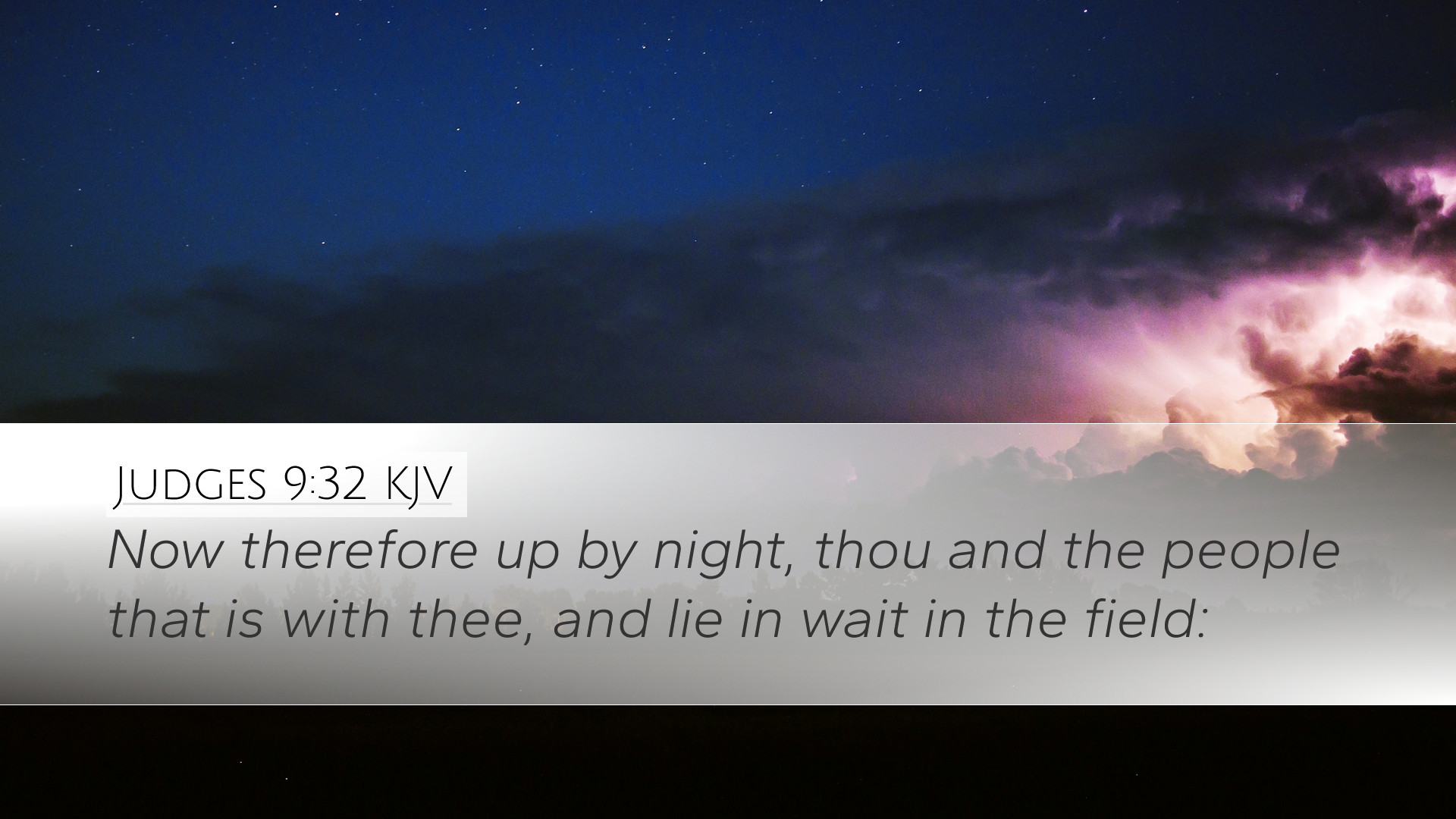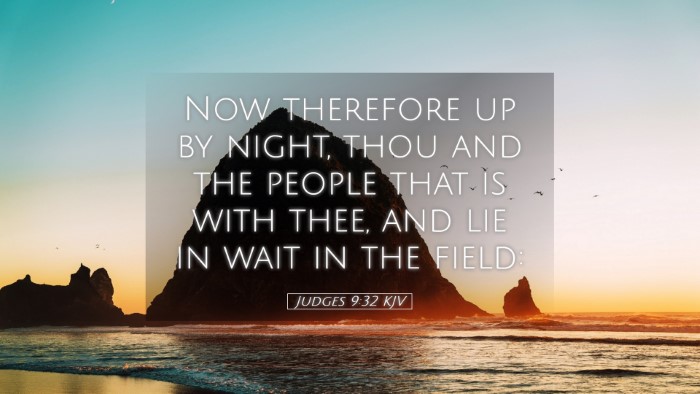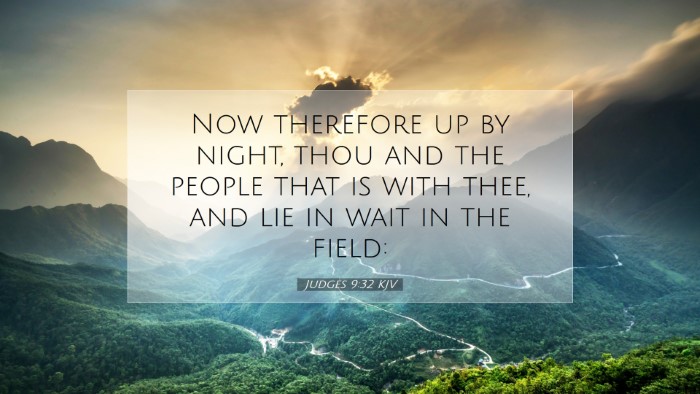Bible Commentary on Judges 9:32
This verse recounts a pivotal moment in the story of Abimelech, the son of Gideon, who sought power over Israel through dubious means. This commentary will explore the insights from various public domain commentaries, including those of Matthew Henry, Albert Barnes, and Adam Clarke.
Context and Background
Judges 9:32 states, "Now therefore, up by night, and lie in wait in the field." This direction from Abimelech demonstrates a strategic and duplicitous approach towards his enemies. Understanding the context of this verse is critical to discern its implications.
Historical Context
The narrative follows the death of Gideon, whose role as a judge was instrumental in delivering Israel from oppression. After his demise, Abimelech's ambition led him to pursue a kingship that was neither supported by divine mandate nor by rightful succession.
The Political Atmosphere
Abimelech's rise embodies a time of turmoil, where Israel lacked unified leadership, fostering a breeding ground for individual ambitions. The verse thus signifies not only a personal endeavor but also reflects the chaotic political landscape of the time.
Exegesis of Judges 9:32
The verse's directive, encapsulating the theme of treachery, exposes Abimelech's character and intentions. Each phrase contains significant theological and moral teachings worthy of examination.
Analysis of “Now therefore, up by night”
This phrase signifies the secrecy and duplicity in Abimelech's plan. Matthew Henry observes that the use of night suggests an association with darkness, pointing to sin and betrayal. It reveals the clandestine operations characteristic of tyrants, contrasting with the transparency expected of a godly leader.
“And lie in wait”
Abimelech’s instruction to “lie in wait” brings to light the calculated nature of his actions. Albert Barnes highlights that the term implies a premeditated approach to violence. This invites a discussion on the moral implications of such behavior among leaders, especially in contrast to the righteous leadership demonstrated by Judges like Gideon.
“In the field”
The choice of location is critical. Adam Clarke notes that fields represent the everyday life of the people, signifying that Abimelech’s tyranny would intrude upon the very essence of the community. This underscores the alarming reality that leaders’ ambitions often encroach upon the lives of the innocent.
Thematic Insights
This verse encapsulates several themes relevant for pastors, students, theologians, and Bible scholars:
- Leadership and Ambition: The desire for power can lead individuals to abandon integrity and resort to underhanded tactics.
- The Nature of Evil: The secrecy and treachery portrayed in Abimelech’s strategy reflect broader theological themes of sin and justice.
- Consequences of Wickedness: The actions of leaders have profound impacts on their followers, urging a consideration of moral responsibility.
Applications for Today
Judges 9:32 serves as a cautionary tale for contemporary readers.
For Pastors and Leaders
Pastors are called to lead with integrity and service, not ambition. This scripture reminds leaders to foster transparency and righteousness in their leadership. Acts of secrecy may lead to unrighteous gains, undermining the very foundation of faith.
For Students of the Bible
Students are encouraged to critically analyze the actions of biblical figures against the backdrop of scripture's moral and ethical teachings. Engaging with this text helps them draw parallels with current issues of leadership and power dynamics.
For Theologians
Theologians can explore the implications of divine justice in light of human failings as portrayed in this verse. Abimelech's actions prompt discussions about the sovereignty of God amidst human rebellion and the consequences of pursuing power at the expense of righteousness.
Conclusion
Judges 9:32 serves as a reflective mirror on the nature of leadership and ambition. By synthesizing insights from Matthew Henry, Albert Barnes, and Adam Clarke, this commentary provides a framework to understand the moral complexities found within this brief verse. As such, it urges readers to consider the weight of their decisions, the integrity of their actions, and the legacy they forge as they navigate their spiritual journeys.


